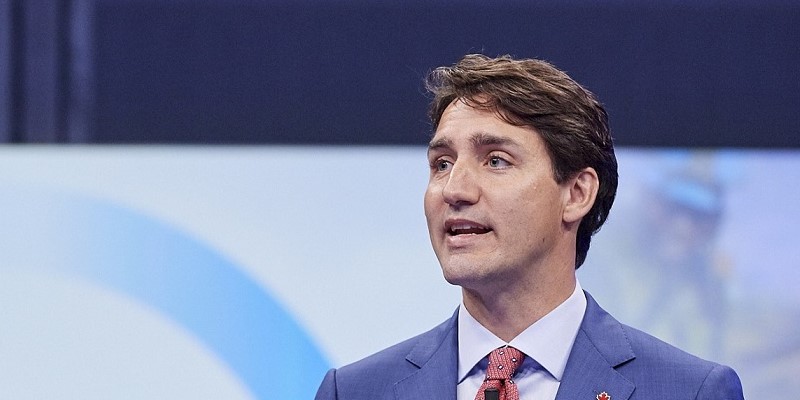Ottawa’s disinterest in entrepreneurship and business investment hurting economy

There’s a basic law of economics that says when people don’t value something, they’ll ultimately get less of it. Since taking office in 2015, the Trudeau government has made it fairly clear it doesn’t value entrepreneurship and private-sector business investment.
At every turn it’s chosen more government, whether it’s more spending (and the higher taxes and borrowing that accompany it) or more regulations. And the discounting of entrepreneurship and business investment has led to a drop in both, leading to a less prosperous Canada.
There’s a simple way to test the Trudeau government’s interest in entrepreneurship and private business investment, which is to review its four throne speeches (2015, 2019, 2020 and 2021) when the government outlines its priorities for the coming Parliament.
In total, the four throne speeches included more than 14,000 words, yet the word “entrepreneur” (or derivations of it) only appeared four times including two references to government programs to encourage entrepreneurship. The word “investment” appears 24 times but every instance except one refers to government spending rather than private business investment. It should be no surprise that Trudeau government policies have favoured expanded government at the expense of policies that would encourage or, at least, not encumber entrepreneurs and business investment.
The decline in business investment has been marked. Between 2014 and 2022, business investment in plants, machinery, equipment and new technologies declined (on average) by 1.2 per cent annually (after adjusting for inflation and excluding residential construction). In contrast, between 2000 and 2014, business investment grew (on average) by 4.3 per cent annually.
Also, according to a recent study, between 2014 and 2021, the latest year of available data, business investment per worker (inflation-adjusted in Canadian dollars, excluding residential construction) in Canada decreased by $3,676 (to $14,687) while increasing by $3,418 (to $26,751) per worker in the United States. Put differently, in 2014 Canadian businesses invested 79 cents per worker compared to their American counterparts. In 2021, that level of investment had declined to just 55 cents per worker.
And Canadians are voting with their wallets. In 2010, Canadians invested $35.8 billion abroad compared to $102.3 billion in 2022. During this enormous increase in the outflow of investment dollars by Canadians to other countries, foreign investment in Canada has stagnated. In a recent analysis, Philip Cross, former chief analyst at Statistics Canada, concluded that the decline in business investment was one of the main causes of Canada’s economic growth crisis.
And make no mistake, Canadians face an outright crisis in terms of economic growth, and it predates COVID. Between 2016 and 2019, per-person GDP, a broad measure of living standards, increased (on average) by only 0.8 per cent. In comparable periods, prime ministers Mulroney (1.9 per cent), Chretien (3.7 per cent) and Harper (1.5 per cent) recorded much higher levels of growth.
Indeed, according to a recent analysis, increases in Canada’s per-person incomes (inflation-adjusted) are the weakest since the 1930s. Moreover, per-person GDP in 2022 (inflation-adjusted) had still not recovered from the pandemic losses and has basically stagnated at 2018 levels.
Finally, prospects for the future, given current trends and policies, are not encouraging. The OECD projects that Canada will record the lowest rate of per-person GDP growth among 32 advanced economies during the periods 2020 to 2030 and 2030 to 2060. Countries such as Estonia, South Korea and New Zealand are expected to vault past Canada and achieve higher living standards by 2060.
Until Canadians, and more specifically, the federal government start to value entrepreneurship and private-sector business investment again—and introduce policies supportive of both—Canadians will continue to forego the benefits of a prosperous economy.
Authors:
Subscribe to the Fraser Institute
Get the latest news from the Fraser Institute on the latest research studies, news and events.


